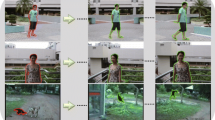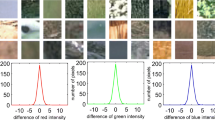Abstract
Most existing object segmentation algorithms suffer from a so-called under-segmentation problem, where parts of the segmented object are missing and holes often occur inside the object region. This problem becomes even more serious when the object pixels have similar intensity values as that of backgrounds. To resolve the problem, we propose a constrained region-growing and contrast enhancement to recover those missing parts and fill in the holes inside the segmented objects. Our proposed scheme consists of three elements: (i) a simple linear transform for contrast enhancement to enable stronger edge detection; (ii) an 8-connected linking regional filter for noise removal; and (iii) a constrained region-growing for elimination of those internal holes. Our experiments show that the proposed scheme is effective towards revolving the under-segmentation problem, in which a representative existing algorithm with edge-map based segmentation technique is used as our benchmark.
Preview
Unable to display preview. Download preview PDF.
Similar content being viewed by others
References
Harris, K., Efstratiadis, S.N., Maglaveras, N., Katsaggelos, A.K.: Hybrid image segmentation using watersheds and fast region merging. IEEE Trans. on image processing 7(12), 1684–1699 (1998)
Vincent, L., Soille, P.: Watersheds in digital spaces: an efficient algorithm based on immersion simulations. IEEE Trans. on Pattern Analysis and Machine Intelligence 13(6), 583–598 (1991)
O’Callaghan, R.J., Bull, D.R.: Combined Morphological-Spectral unsupervised image segmentation. IEEE Trans. on image processing 14(1), 49–62 (2005)
Tsai, Y.P., Lai, C.C., Hung, Y.P., et al.: A Bayesian approach to video object segmentation via merging 3-D watershed volumes. IEEE Trans. on Circuits and Systems for Video Tech. 15(1), 175–180 (2005)
Jung, C.R., Scharcanski, J.: Robust watershed segmentation using wavelets. Image and Vision Computing 23(7), 661–669 (2005)
Kim, M., et al.: A VOP generation tool: automatic segmentation of moving objects in image sequences based on spatio-temporal information. IEEE Trans. Circuits, Systems for Video Technology 9(8), 1216–1227 (1999)
Kim, C., Hwang, J.N.: Fast and automatic video object segmentation and tracking for content-based applications. IEEE Trans. Circuits and Systems for Video Technology 12(2), 122–128 (2002)
Salembier, P., Pardas, M.: Hierarchical morphological segmentation for image sequence coding. IEEE Trans. Image Processing 3(5), 639–648 (1994)
Chien, S.Y., et al.: Efficient moving object segmentation algorithm using background registration technique. IEEE Trans. Circuits and Systems for Video Technology 12(7), 577–589 (2002)
Shamim, A., Robinson, A.: Object-based video coding by global-to-local motion segmentation. IEEE Trans. Circuits, Systems for Video Technology 12(12), 1106–1115 (2002)
Feng, G.C., Jiang, J.: Image segmentation in compressed domain. Journal of Electronic Imaging, SPIE 12(3), 390–397 (2003)
Toklu, C., et al.: Semi-automatic video object segmentation in the presence of occlusion. IEEE Trans. Circuits and Systems for Video Technology 10(4), 624–635 (2000)
Kervrann, C., Heitz, F.: Statistical deformable model-based segmentation of image motion. IEEE Trans. Image Processing 8(4), 583–594 (1999)
Meier, T., Ngan, K.: Automatic segmentation of moving objects for video object plane generation. IEEE Trans. Circuits, Systems for Video Tech. 8(5), 525 (1998)
Xu, Y., et al.: Object-based image labeling through learning by example and multi-level segmentation. Pattern Recognition 36, 1407–1423 (2003)
Author information
Authors and Affiliations
Editor information
Editors and Affiliations
Rights and permissions
Copyright information
© 2006 Springer-Verlag Berlin Heidelberg
About this paper
Cite this paper
Gao, L., Jiang, J., Yang, S.Y. (2006). Constrained Region-Growing and Edge Enhancement Towards Automated Semantic Video Object Segmentation. In: Blanc-Talon, J., Philips, W., Popescu, D., Scheunders, P. (eds) Advanced Concepts for Intelligent Vision Systems. ACIVS 2006. Lecture Notes in Computer Science, vol 4179. Springer, Berlin, Heidelberg. https://doi.org/10.1007/11864349_29
Download citation
DOI: https://doi.org/10.1007/11864349_29
Publisher Name: Springer, Berlin, Heidelberg
Print ISBN: 978-3-540-44630-9
Online ISBN: 978-3-540-44632-3
eBook Packages: Computer ScienceComputer Science (R0)




